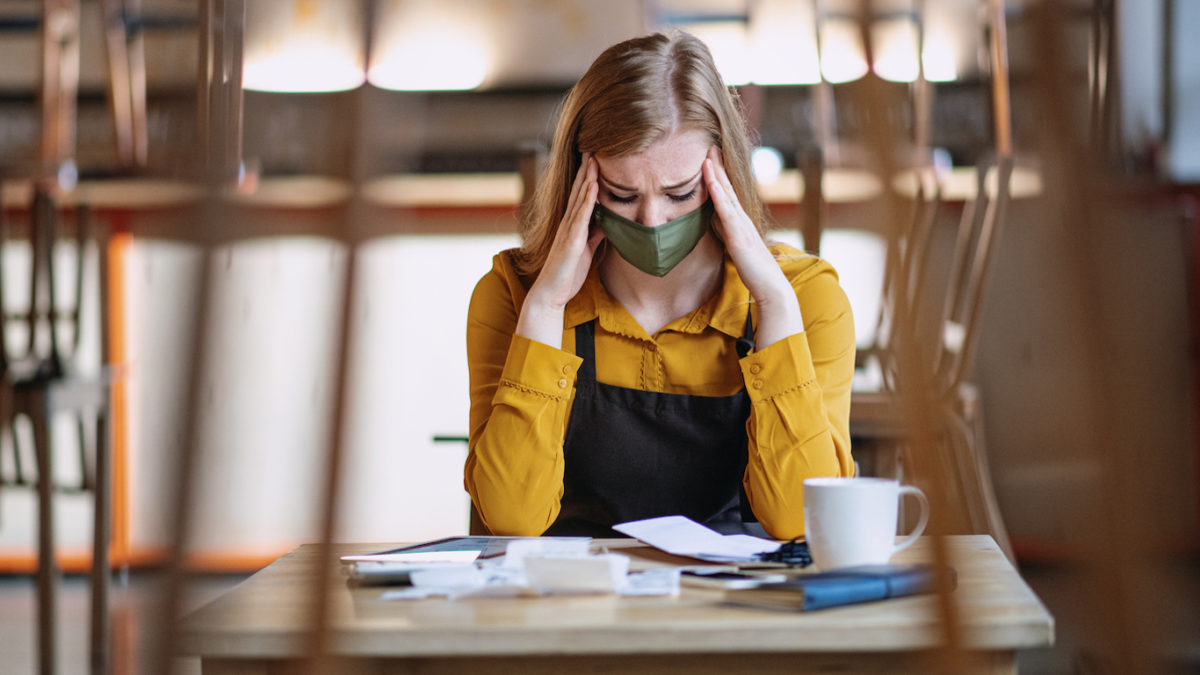Health, wealth & COVID-19: Pandemic-induced financial strains show impact on health risk behaviors

Over the past year, COVID-19 has spread around the globe with confirmed cases in at least 192 countries and regions. Although the coronavirus has affected us all, some communities have been spared its most devastating effects, while others have not been as fortunate.
Why have some communities avoided the brunt of the pandemic while others have struggled to stave off the blows?
In the United States, stark differences in income, job security, and access to healthcare, food, safe housing and transportation have shaped the extent to which communities suffer the long- and short-term effects of the pandemic.
Women disproportionately affected
Women, in particular, have faced distinct risks since the pandemic began, the Organization for Economic Co-operation and Development (OECD) reports, noting that women more often than men have taken the lion’s share of responsibilities at home during school and daycare closures. Among the working population, they also are especially likely to be in stressful frontline jobs, according to an analysis from the Center for Economic and Policy Research.
From March 20 to April 10, 2020, we collaborated with the Boston University School of Public Health to examine how women managed financial hardships associated with the pandemic. We surveyed more than 90,000 women with the goal of assessing whether COVID-19 financial stressors were associated with health risk behavior changes. We also sought to learn whether existing social inequalities have played a role in determining who is at a higher risk.
In the analysis, published in the March 2021 edition of SSM – Population Health, we observed that more than one-third of women surveyed experienced financial stressors – job loss, decreases in pay, or trouble paying bills. These stressors were in turn associated with less healthy lifestyle habits and behaviors, including:
- Smoking or vaping more
- Drinking more
- Exercising less
- Sleeping less
- Eating less healthy
Overall, reporting one or more financial stressors was associated with 56% higher odds of reporting two or more negative lifestyle habit changes. The survey also revealed that 16% of working women whose pay was reduced reported drinking more alcohol since the pandemic, compared to 13% who did not report a decrease in pay. Meanwhile, 33% of women who were having trouble paying their bills reported they were sleeping fewer hours since the start of the pandemic, compared to only 21% who did not report difficulty paying bills. Additionally, women who reported trouble paying their bills were three times as likely to indicate that they were smoking or vaping more.
Putting data into action
The survey found those who were at a socioeconomic disadvantage when the pandemic began were more likely than those better-off to experience financial stressors and negative lifestyle habit changes, further widening gaps between the health haves and have-nots. Similarly, women without health insurance were more likely than those with coverage to suffer worse outcomes.
A 2017 study published in the European Journal of Public Health underscores these findings, suggesting that direct costs only partly explain why lower socioeconomic status is associated with a less healthy lifestyle. The researchers contend that lower income increases the risk for financial strain, which can take up mental “bandwidth” or the ability to focus, follow through on plans, and make healthier life choices. For those facing financial woes, this stress also may trigger unhealthy coping habits more easily, such as smoking or drinking more.
Analysis of data collected from Sharecare’s Blue Zones Project communities during the pandemic suggests a set of tools to boost community resiliency in the face of the next public health challenge. Residents of communities that implemented well-being transformation efforts focused on individual behavior, the built environment, and local policy were more likely to report positive health behavior changes, even in the face of financial stressors such as pay cuts.
Using what we have learned from the data, we call on communities to come together to address pandemic-impacted individual risk factors and social inequities for building a more resilient post-COVID-19 world.